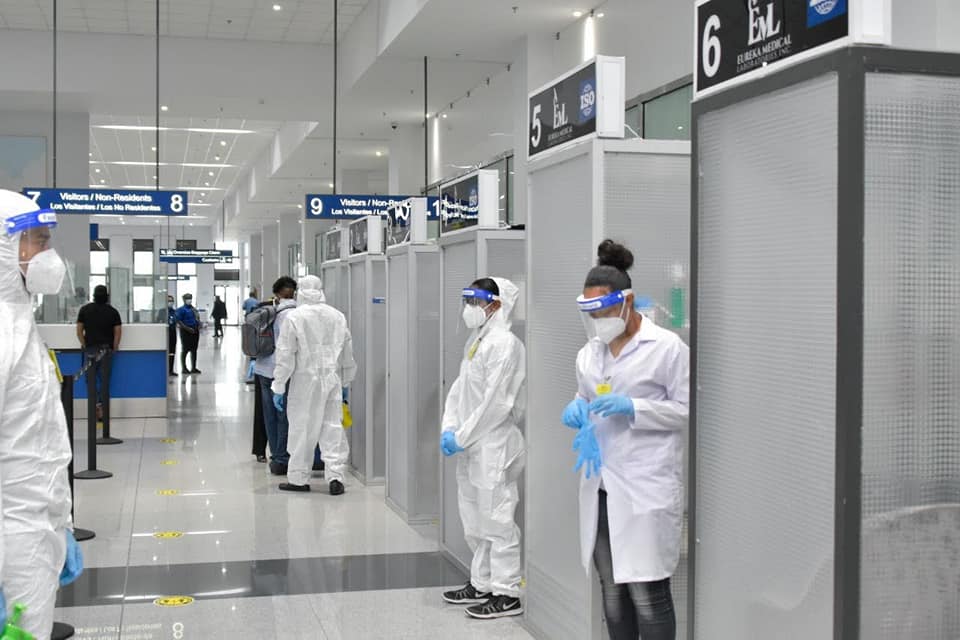By Vishani Ragobeer
Heads of Government of the Caribbean Community (CARICOM) are expected to consider proposals next week for the reduction of taxes for intra-regional travel and the establishment of a travel bubble replete with COVID-19 safety protocols to resuscitate the regional tourism industry.
This was highlighted by the incumbent Chairman of CARICOM, Prime Minister of Antigua and Barbuda, Gaston Browne during a press conference on Tuesday night.
The impetus for resuming intra-regional travel follows a year of COVID-19 restrictions which led to a downturn in the tourism sector. Contextually, this sector is one of the major income earners in the region, with a number of countries heavily dependent on it.
Last year, Guyana was the only country to record positive economic growth owed to its burgeoning oil and gas sector.
“We recognise the need to reopen economies while balancing the health and economic livelihood of community nationals and agreed that new protocols for health, safety, visitor management and [sanitization] protocols were of utmost importance in encouraging the resuscitation of the tourism sector,” Prime Minister Browne said on Tuesday.
As such, he related that leaders agreed, during the 42nd meeting of the conference of the Heads of Government, that they would consider proposals for the reduction of taxes for intra-regional travel and to create a regional travel bubble, both for a pilot period of six months.

He said that the meeting for this should be held next week and by then, the parameters of the travel bubble and the final determinations on these proposals should be made. The Prime Minister emphasised that no conclusive decision has been made as yet.
“There is a consideration to reducing regional travel taxes in order to decrease the price for tickets and increase the demand for travel,” the CARICOM Chairman said.
He added, “The whole idea is for the rest of CARICOM to come together perhaps at our next meeting to have, perhaps, a more harmonised approach to the rest of the CARICOM countries that have not taken any action as yet to reduce the travel tax to increase travel and at the same time to assist our airlines, many of which are literally tethering on bankruptcy.”
Already, In June, Prime Minister Browne himself was expected to table a proposal at the Prime Ministerial Sub-Committee on the CARICOM Single Market and Economy (CSME) urging regional governments to an initiative to significantly reduce air transport taxes in a bid to encourage intra-regional travel as the threat from the pandemic declines.
He subsequently announced a 50 per cent reduction in taxes on airline tickets for travel within several countries of CARICOM, indicating also that the measure will last for six months in the first instance.
On Tuesday night, Prime Minister Browne said that this reduction could be operationalised in about tw weeks time.
Additionally, he stated that the Heads of Government both endorsed the recommendation for the need for a “harmonised policy” for the travel of both vaccinated and unvaccinated people.
In this regard, he said that the CARICOM Secretariat in collaboration with the Caribbean Public Health Agency (CARPHA) and other relevant regional security agencies would convene a high-level meeting with cruise lines to agree on minimum health and safety guidelines for the resumption of cruise sailing in the Caribbean region.
He emphasised that in all of the considerations being made to resuscitate travel, emphasis has to be placed on ensuring that there is no leeway for the spread of COVID-19.
Meanwhile, the Prime Minister also stated CARICOM’s aim of ensuring that the region achieves herd immunity, through vaccination, by year-end. This means that about 80 per cent of the eligible population should be vaccinated.
The achievement of herd immunity, he posited, will also help the regional economies to recover and help protect both lives and livelihoods.
Importantly, the Prime Minister said, “We are confident that because of ongoing conversations we will have sufficient vaccines to achieve herd immunity by year end.”
The region has been promised life-saving vaccines from the United States, the African Union and other bilateral platforms.






